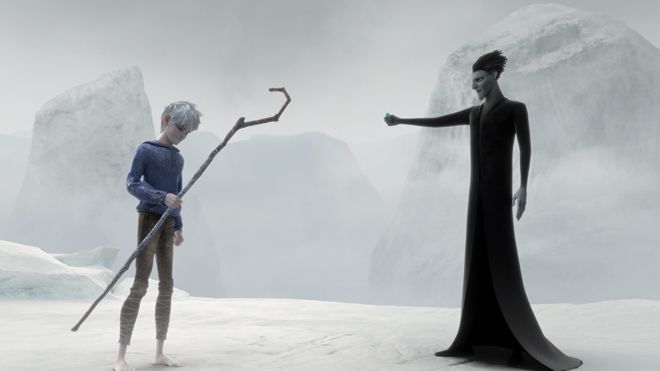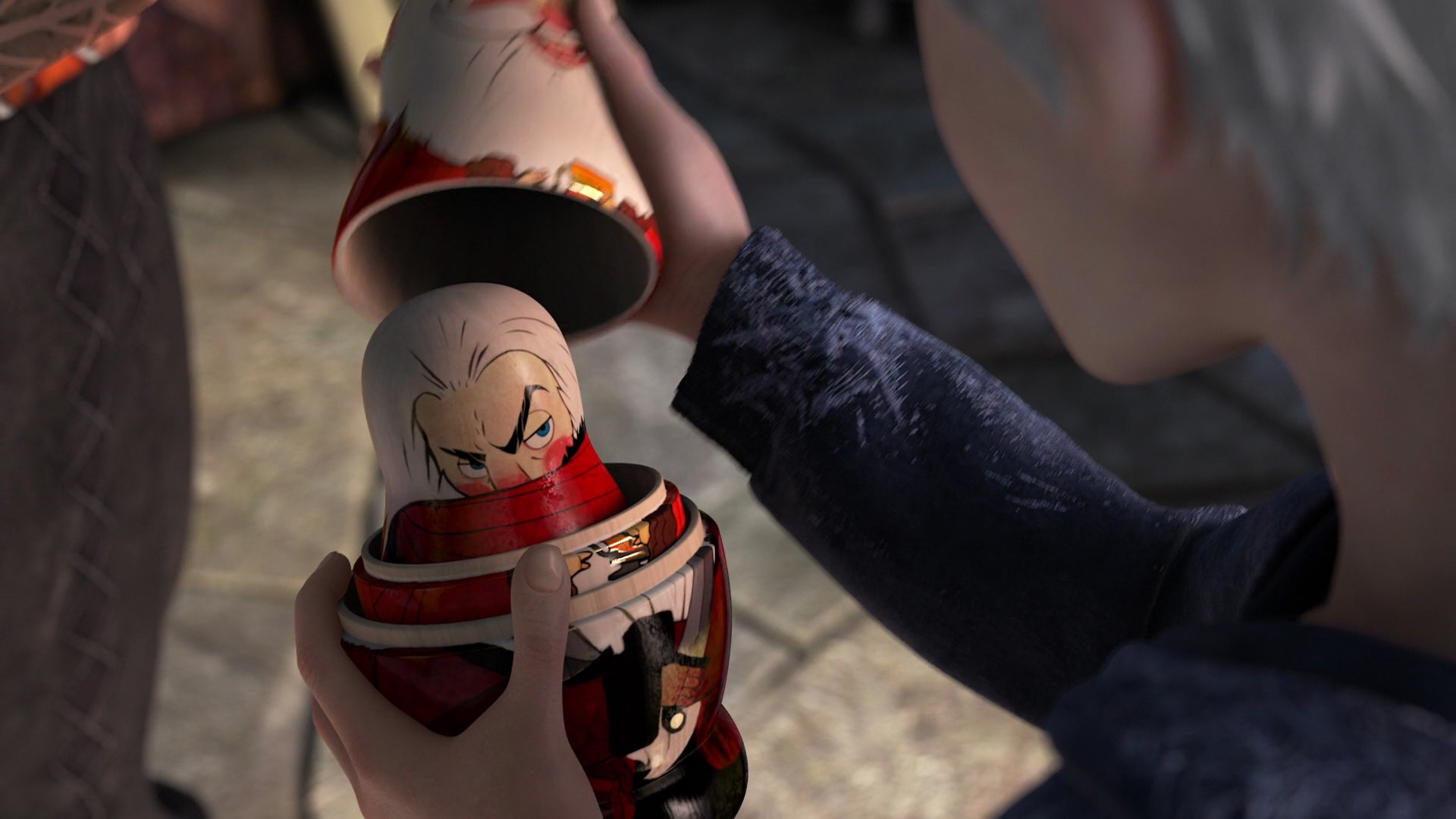Writing Tips from Rise of the Guardians
If you were to ask me a list of my favorite animated, non-Disney movies (which would be long), one of my top ones would be Rise of the Guardians. It's done by Dreamworks and based off the book series by William Joyce (which I've also read and adored). Actors in it include big names like Chris Pine, Alec Baldwin, and Hugh Jackman. It's an amazing story and I could write a whole post on reasons you should watch it, but today we're focusing on writing lessons we can learn from it. So before this introduction rambles on forever, let's get into it.
Spoilers for the movie ahead!
1. Mirror your hero and villain
In the movie, the hero, Jack Frost, and the villain, Pitch Black, are very similar characters. They're both outcasts, forgotten by the world, and ignored by the Guardians and ignoring them in return. The only difference is that Pitch has chosen a path of darkness and Jack (in the end) chooses the path of good. A different decision by either of them could have lead to them working together or being the opposite way.
Mirroring your hero and your villain can be a powerful story tool. It shows how the simplest things like being raised differently or making different choices could have changed either character. It also shows your protagonist more about themselves and their dark sides when faced with a villain who is so similar.
(For more on this, read this post by Better Novel Project, which is where I first learned about it.)
2. Complex characters
At one point in the movie, Santa Claus is talking to Jack about his center, the thing that he brings to the world. And he demonstrates that through the use of a nesting doll, showing his layers. This makes an excellent point that we aren't one thing. There are many layers to our characters, and the same goes for the people in this movie. They are more than stereotypes, they feel real.
Many kids movies and books have a tendency to make people one or two dimensional. The characters don't go much beyond a certain type. We need to remember to give our characters layers, inconsistencies, know what makes them uncontrollably angry. That's when you'll have a strong character people will love.
3. Make a scary villain
Pitch is an excellent villain, because he's scary. Not just because he's all dark and has creepy night mares either. He knows every one of the hero's weaknesses and hits them right there. And at the same time, you can see where he's coming from, having not been believed in for years and just wanting people to know he's real. Even his night mares are afraid of him at times.
You can use both of those to increase the fear factor for your villain. When the bad guy knows where the hero is weak and goes for it, it's terrifying. And the second we start to empathize with a villain, we instantly become more scared of them, just do to the fact that we agree with them. All that physiological stuff can be fun when it comes to the baddies.
4. Let your characters have fun
Jack Frost's center is having fun. From a few minutes into the movie to the very end, he laughs and smiles and has fun. He loves bringing snow and making people, kids especially laugh. He even has the power to make others see the fun in things through his snowflakes. That's why he's so important to the story, because the other Guardians have forgotten about the joy they should feel when bringing joy to children.
Too often, I think our heroes are too serious for too long. Make a brooding hero and people might grow to like them. But let him have a little fun, and laugh, and we'll fall in love. Think of your favorite books and movies and think about those moments. The part in Lord of the Rings where Aragorn, Boromir, Merry, and Pippin are goofing off. The kids in Narnia having a snowball fight. Those are the moments that make us love them.
5. Show the power of good
One of the best parts of this movie is the depiction of the power of light and hope over darkness and fear. That's the reason that Pitch takes out the Sandman first, because Sandy's power is bringing hope through dreams. That's why the kids are so important in the end, because their hope, even the dark times, is what defeats Pitch in the end.
Remember to show the true power of light to bring hope to the world. The world needs that message now more than ever as so many people are weighed down by the darkness. As Christian writers, that's especially important to show in our stories, alongside the dark truths of the world.
6. Bring on the character arc
Jack Frost has an amazing arc in this movie. He starts off as a selfish, uncaring person, unwilling to shoulder the role the Man in the Moon (sort of a God character) has handed him and insecure about his role in the world. But by the end, he's become a kind and self-less person, willing to protect the children no matter what. It's a powerful arc and really well done, putting Jack through all the paces, tempting him with what he wants most, and making him fail. Not only that, he also has an amazing backstory.
Remember to give your characters strong arcs, because it will make them stronger as characters and will make them more lovable. I don't know why, but when we watch someone change in front of our eyes, it makes us love them more. Also, don't forget to make it hard for them to change. Tempt them at every turn to go back to the way they used to be, but ultimately chose their new path.
Have you seen this movie? Which of these lessons is your favorite? Tell me in the comments.
Suggested Posts:











Some good points here.
ReplyDeleteAh, I love this movie!!! It's one of my favs. <333 I think the lesson about letting your heroes have fun is my favourite. I love those scenes from LotR and Narnia. :-D
ReplyDeleteYeah, having fun is one of my favorite points too. :)
Delete